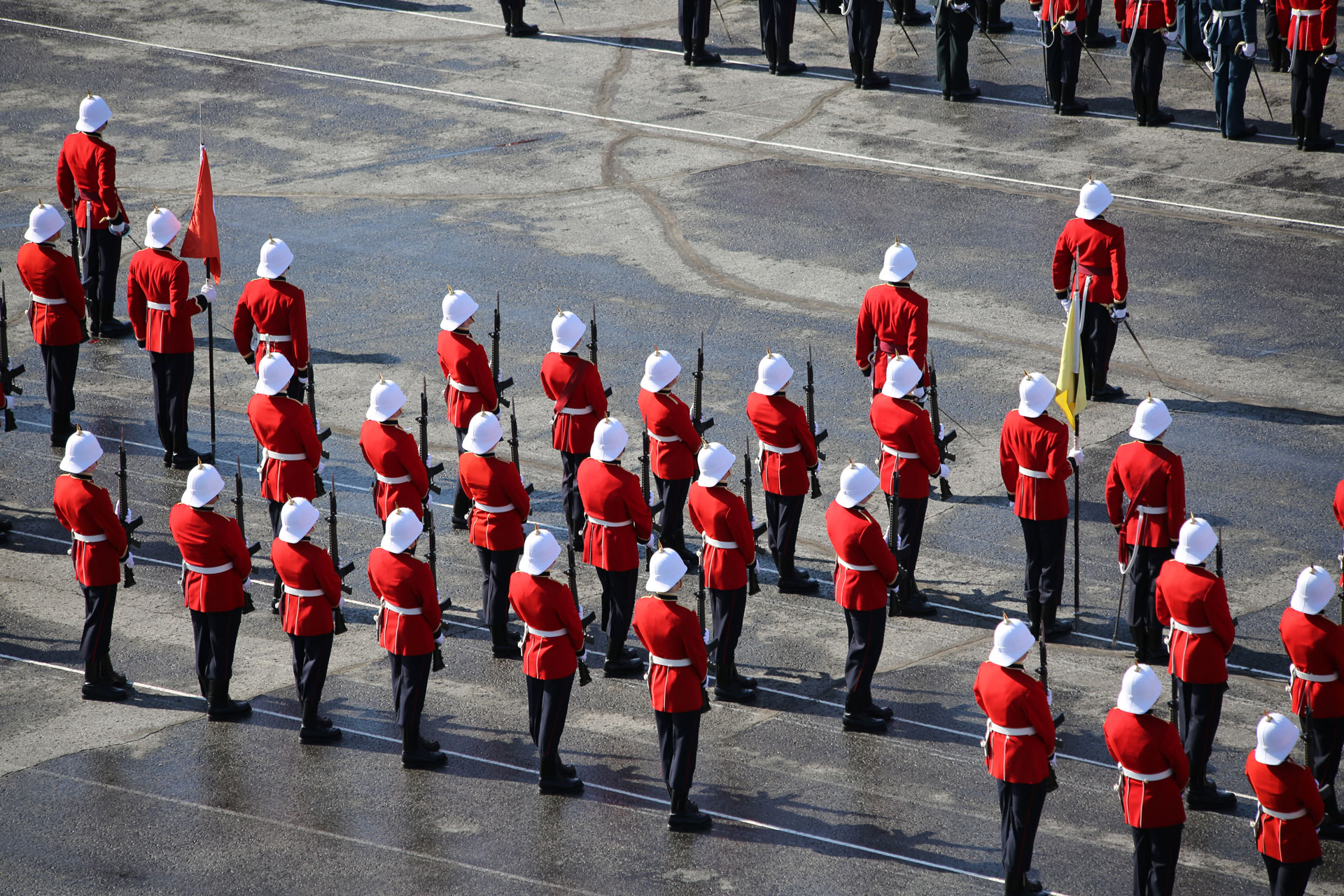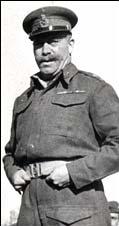
Who am I?
By E3161 Victoria Edwards (RMC ‘03)
- I was born in Armagh, Ireland, on April 13th, 1904. I was the son of a British officer, who served as the Engineering officer at RMC.
- My brother and I were educated at the Royal Military College in Kingston, Ontario. I was at RMC from 1921 to 1925. My brother studied at RMC from 1926-1930.
- Upon graduating, I joined the Royal Canadian Engineers of the Permanent Force. In earned a Bachelor’s Degree in Science from McGill
- University in Montreal in 1927. I studied at the Camberley Staff College in England 1934-1935.
- I rapidly rose through the ranks of the Canadian General Staff starting in 1939. With the 1st Infantry Division, I served as Adjutant
- General, Assistant Quartermaster General, General Staff Officer, grade 1, and as Officer Commanding the Princess Patricia’s Canadian Light Infantry.
- On June 24th, 1942, I was promoted to Brigadier, in charge of the 2nd Infantry Brigade.
- The 2nd Infantry Brigade landed in Pachino on July 10th, 1942, and started its march through Sicily. The Brigade crossed over to mainland Italy in September 1943.
- On November 1st, 1943, I was appointed commander of the 1st Canadian Infantry Division and promoted to Major-General. I took part in the bitter fighting leading to the capture of Ortona on December 27th, 1943. A few months later, on May 23rd, 1944, the 1st Canadian Division, progressing along the Liri Valley, broke through the Adolf Hitler Line.
- Under my command, the 1st Division pierced the Gothic Line on September 3rd, 1944.
- I was given command of the 4th Canadian Armoured Division on December 1st, 1944. My troops fought the Battle of the Hochwald, in February-March 1945, then progressed across northern Germany to the final victory. I remained in Europe as General Officer Commanding the Canadian Army Occupation Force from June 1945 to May 1946.
- Back in Canada, I was put in charge of the Canadian Army’s Central Command and later of Western Command.
- I retired from the military in 1959.
- I published my memoirs in 1985: “It is a matter of great satisfaction to me that no troops under my command ever lost a battle, although there were some very difficult ones in Sicily, Italy, Holland and Germany Also, I shall always regret deeply, very deeply, there ever had to be casualties. Casualties cannot be separated from battles. A commander at any level cannot shirk unpleasant decisions, whether he be corporal or general or any rank in between. If he does shirk such decisions, he is unfit to command in battle. The good on the other hand, consists of memories of the camaraderie, the pride, the courage, the fighting skills of Canadian soldiers and, most of all, our discipline and obedience to the will of Parliament. I think yet of our Canadian soldier’s peculiar wit and great ability to improvise. You should know our soldiers were kind to the children of our enemies, and kind to those in adversity. And they were, on the whole, great ambassadors for Canada.”
- I died in Oakville, Ontario, on March 28th, 1985.
A) 1801 General Stephen Morres
B) 1814 General Elliot N Rodger
C) 1633 General Chris Vokes
Answer: C) 1633 Major General Chris Vokes (RMC 1921-4) was the son of Major Frederick Patrick Vokes, the Engineering officer at RMC and Elizebeth Vokes. He was the brother of 1940 Lieutenant-Colonel Frederick Alexander Vokes (RMC 1926-1930). The family lived in Married Quarters at Ridout Row. He commanded 1st Canadian Infantry Division in Italy, 1943-1944 and 4th Canadian Armoured Division in North-West Europe, 1944-1945.
His memoires: Vokes, Chris ; Maclean, John P. — Vokes : my story. — Ottawa : Gallery Books, 1985. — 233 p.


